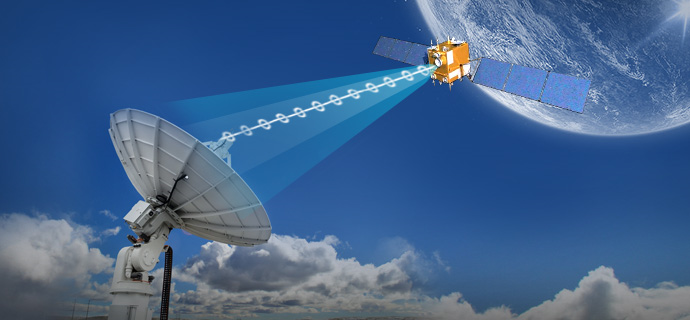ITU defines frequency bands, which are used for satellite communications.
UHF (Ultra High Frequency) or decimeter wave frequency band, the frequency range is 300MHz-3GHz.
This frequency band corresponds to IEEE UHF (300MHz-1GHz), L (1-2GHz), and S (2-4GHz) frequency bands.
UHF frequency band radio waves are close to the line-of-sight propagation, easily blocked by mountains and buildings, etc., and indoor transmission attenuation is relatively large.
SHF (Super High Frequency) or centimeter wave frequency band, the frequency range is 3-30GHz.
This frequency band corresponds to IEEE S (2-4GHz), C (4-8GHz), Ku (12-18GHz), K (18-27GHz) and Ka (26.5-40GHz) frequency bands.
Decimeter waves have a wavelength of 1cm-1dm, and their propagation characteristics are close to light waves.
EHF (Extremely High Frequency) or millimeter wave frequency band, the frequency range is 30-300GHz.
This frequency band corresponds to IEEE’s Ka (26.5-40GHz), V (40-75GHz) and other frequency bands.
Developed countries have begun plans to use 50/40GHz Q/V frequency bands at gateways of the high-capacity fixed-satellite service (HDFSS) when Ka-band resources are also becoming tight.




